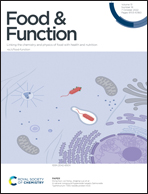Sennoside A is a novel inhibitor targeting caspase-1
Abstract
The assembly of inflammasomes drives caspase-1 activation, which further promotes proinflammatory cytokine secretion and downstream pyroptosis. The discovery of novel caspase-1 inhibitors is pivotal to developing new therapeutic means for inflammasome-involved diseases. In our present study, sennoside A (Sen A), a popular ingredient in multiple weight-loss medicines and dietary supplements, is found to potently inhibit the enzymatic activity of caspase-1 in vitro. Sen A considerably decreased IL-1β production in macrophages stimulated by LPS plus ATP, nigericin or MSU as well as poly(dA:dT) transfection, and remedied ROS-involved pyroptosis via caspase-1 inhibition. Mechanistically, Sen A not only suppressed the assembly of both NLRP3 and AIM2 inflammasome but also affected the priming process of NLRP3 inflammasome by blocking NF-κB signaling. Sen A significantly ameliorated the pathophysiological effect in LPS-, MSU- and carrageenan-challenged rodent models by suppressing inflammasome activation. Furthermore, P2X7 was indispensable for Sen A inhibiting NLRP3 inflammasome since it failed to further decrease IL-1β and IL-18 production in LPS plus ATP-stimulated BMDMs that were transfected with P2X7 siRNA. Sen A also restrained the large pore-forming functionalities of the P2X7R as verified by the YO-PRO-1 uptake assay. Taken together, Sen A inactivates caspase-1 to inhibit NLRP3 and AIM2 inflammasome-involved inflammation in a P2X7-dependent manner, making it an attractive candidate as a caspase-1 small-molecular inhibitor.

- This article is part of the themed collection: Food & Function HOT Articles 2022


 Please wait while we load your content...
Please wait while we load your content...